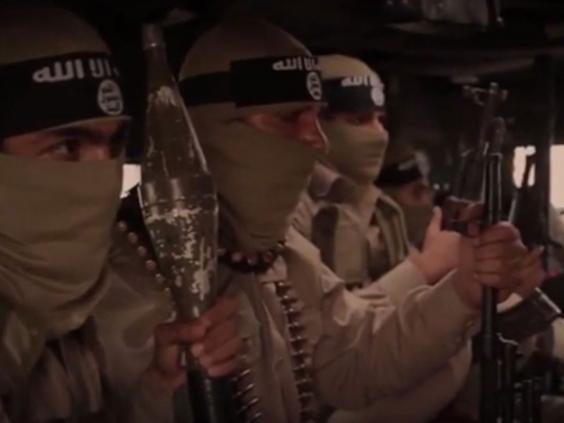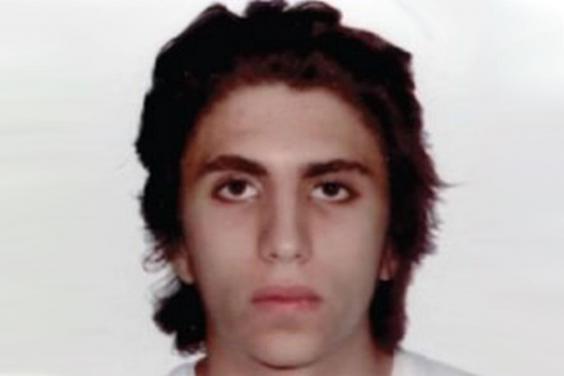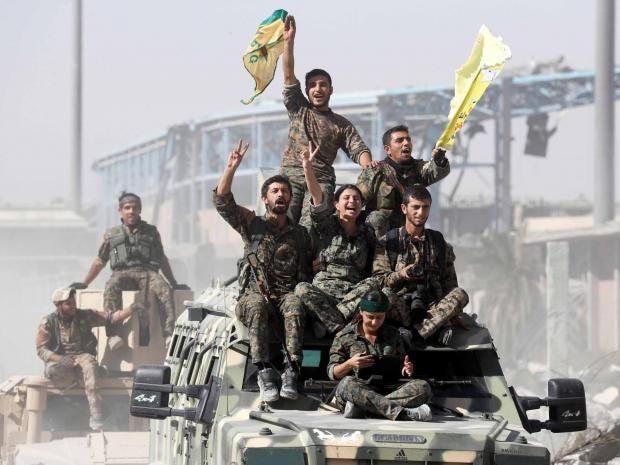Setting
up the UK for more false flags and the removal of civil liberties
UK
terror attacks likely to increase despite Isis' defeat in Raqqa
'This
is not the end of the story': Experts warn radicalisation will
continue as affiliates operate around the world
18 October, 2017
Terror attacks in the UK
and West are likely to increase despite Isis being driven out of the
Syrian city of Raqqa, analysts have warned amid fears of an al-Qaeda
resurgence.
The militants’ defeat
in their de facto capital has been hailed as a major victory in the
three-year battle to retake swathes of Syria and Iraq, but
territorial losses are being met with intensified calls for
atrocities around the world.
Experts say there is no
sign of the deadly trend of rudimentary but lethal Isis-inspired
attacks like those in Westminster and London Bridge slowing down.
Jean-Marc Rickli, a
research fellow at the Geneva Centre for Security Policy and King's
College London, said Raqqa was “not the end of the story”.
“It is quite the
opposite because for Isis to remain relevant they have to hit the
headlines, so it will go after easier and softer targets,” he told
The Independent.
“What we’re
witnessing is an increase in the number of attacks in the West.
“The destruction of
Isis in Syria and Iraq will probably increase this phenomenon, not
only in the West but in Asia.”
Dr Rickli said that as
well as the heightened threat posed by an unknown number of foreign
fighters returning to their home countries, Isis has increased its
drive aimed at encouraging lone-wolf style attacks – recently
extending the call to women.
“The physical
elimination of one group in one location doesn’t at all mean the
elimination of the entire cancer [of jihadism],” he added. “The
ideology is out there and that is almost impossible to destroy.”
Raffaello Pantucci,
director of International Security Studies at the Royal United
Services Institute (RUSI), said Isis was working hard on new ways to
lure in new recruits without the promise of a utopian “Islamic
State”.
“They’ve lost
territory and they’ve lost Raqqa, so there’s a less obvious
‘state’ for people who were going to come and join them,” he
added.
“But they have managed
to spin an ideological narrative less bound to these realities,
focusing on grievances and a supposed clash of civilisations.”
Adam Deen, executive
director of the Quilliam Foundation, said that Isis could use images
from Raqqa and other warzones as a “powerful tool” of
radicalisation, having released numerous photos and videos appearing
to show children and civilians killed in air strikes.
“The concern is that
we’ve fallen into a sense of false victory like we did with the
death of Osama bin Laden,” he added.
“Isis’ message was
either to emigrate to the ‘caliphate’ or carry out an attack. Now
they don’t have the former, all of their energy will be focused on
the latter, even more so out of a sense of revenge.
“We’re going to see
without a doubt more attacks in the West.”
As Isis’ “caliphate”
crumbles, there is an additional risk that followers unable to travel
abroad will launch attacks on home soil instead – as seen in the
London Bridge attack and other recent plots.
Analysts have also warned
that Isis could pivot its propaganda to inspire revenge attacks borne
of nostalgia for its destroyed state.
There is an additional
possibility that the group could renew attempts to launch centrally
organised assaults from its remaining territory in Syria and Iraq, or
emerging bases elsewhere.
With Raqqa as Isis’
de-facto capital and base of operations, it presented an easy target
for surveillance operations and air strikes but key operatives will
be now more difficult to track.
Insurgents affiliated
with the group control pockets of territory in countries including
Libya, Egypt, Afghanistan, Nigeria and the Philippines – all of
which could be used as future bases for international attacks.
Isis has continued
efforts to expand its global operations, with an unverified video
released this week claiming to show a new group of jihadis pledging
allegiance in the Democratic Republic of the Congo.
Research shows that Isis’
propaganda operations has been declining over the past year, although
videos, statements and magazines are still being published in
multiple languages including English, Turkish, Arabic and Russian.
“Isis’ propaganda
wing has taken a hit but it will continue to put out its message,”
Mr Deen warned.
“Social media companies
have improved removals but it’s not just about censorship, it’s
about providing a counter-narrative because people will go
underground to get the information.
“The alternative is
where we’re struggling.”

Isis
has continued to put out propaganda from warzones as it
loses territory
Mr Deen, himself a former
member of Anjem Choudary’s banned al-Muhajiroun network, said
Quilliam was among the organisations involved in counter-extremism
programmes but warned of a “long and drawn-out battle ahead”.
He suggested that
returned fighters who are disillusioned with Isis and can expose the
group’s hypocrisy and brutality could be used to dissuade future
followers.
Experts are divided on
the danger posed by returnees, who have not yet emerged in the UK in
numbers once feared.
Amarnath Amarasingam,
a senior research fellow at the Institute for Strategic Dialogue,
said his research indicated that jihadis who want to fight abroad and
those who want to attack locally are “two different kinds of
people”.
“One is more interested
in leaving the sinful West and wants to help fight for what they
perceive to be a more pure society – the ones who attack locally
are mostly motivated by revenge and wanting to pay back the West for
attacks in Syria,” he explained, warning that there was some
overlap.
Mr Pantucci said former
militants’ behaviour would be hard to predict, adding: “Very few
go out to go off to a place like Syria and Iraq with the intention of
training and coming back to be a terrorist.”
But some of the deadliest
attacks in Europe have been carried out by trained foreign fighters,
including the cell behind the Paris and Brussels attacks, and the
Manchester bomber Salman Abedi is believed to have met Isis members
in Libya.
Mr Deen said statistics
show that the likelihood of carrying out a terror attack is
dramatically increased for individuals who undergo combat training
abroad, with those returning possibly feeling a heightened sense of
grievance over Isis losses.

Youssef Zaghba,
one of the London Bridge attackers, had been prevented from joining
Isis in Syria
Andrew Parker, the
director-general of MI5, previously revealed that seven plots have
been foiled in the UK in as many months as the threat “operates at
a scale and pace we have not seen before”.
“The threat is more
diverse than I’ve ever known,” he said in a speech on Tuesday.
“Plots online, complex scheming and also crude stabbings, lengthy
planning, but also spontaneous attacks.”
Around 500 live
operations are currently underway, targeting 3,000 of the most
dangerous known jihadists, while at least 20,000 are being monitored
after previously appearing on the counter-terrorism radar.
Analysts have warned that
the real threat may be far larger as “clean skins” not previously
known for extremist links are inspired to launch attacks.
Dr Amarasingam said the
“glory days of Isis recruitment” that saw more than 800 British
followers leave for Syria and Iraq in 2014 and 2015 are over, adding:
“Their efforts at recruitment will of course continue, but their
message will change, what they ask of recruits and supporters will
change, and we just have to make sure we are listening carefully,
both to local messages and their messages to supporters abroad.”
While Isis has been
credited with driving a dramatic increase in global terror attacks
since 2014, the international focus on the group has allowed its
rival al-Qaeda to gather strength elsewhere.
The group was virtually
written off after heavy losses in Iraq during the mid 2000s, and
again with the killing of its leader in 2011, but is now operating
both openly and through affiliates across the Middle East and Africa.
Dr Rickli said the group,
which spawned Isis but has since publicly denounced it for being too
extreme, had been gathering members in the Idlib region of Syria but
still had international ambitions.
“In the future it is
possible that we will see attacks in the West by both Isis and
al-Qaeda supporters, we shouldn’t dismiss the rising threat of
al-Qaeda that has been rebuilt and will now probably strike again in
the West,” he added.
“We shouldn’t forget
the lessons of what happened earlier – it might be that it won’t
be Isis or al-Qaeda that emerges as the next powerful group but a new
one built on the lessons of the failures of its predecessors. You
never know.”




Al Nusra in Idlib coordinated an attack, in Hama, w/SDF's attack in Deir Ezzor. Nusra tried to kidnap Russian soldiers, got annihilated. SDF grabbed oil fields from ISIS w/out firing a shot. Then Russia published sat. photos of SDF/US spec. forces at former ISIS posts. ISIS in Raqqa were evacuated, and sent to Deir Ezzor and Palmyra. Refuge camp at Tanf was used as human shields, then ISIS attacks originated from US-controlled areas. Going back to April, Shajul Islam(former ISIS) & Qaeda journo Hadi were first to provide "evidence" of "sarin attack". Shajul was from UK, banned from med practice by secret commission after spending time in jail for ISIS kidnapping of journos. One journo, John Cantlie, still w/ISIS- A propaganda vid for ISIS included White Helmets(funded & promoted by UK/US/NATO gov'ts & MSM) who were referred to as "ISIS' fire brigade". White Helmets included al Zinki members who were funded, "vetted" by State Dept.. Zinki White Helmets were responsible for Omran photo. SDF has coordinated w/ISIS to occupy resource-rich areas in Iraq and Syria. Israel & US coalition has provided air support, & more, for ISIS/Qaeda. New ISIS training camp in Golan Heights. Sauds & Gulfies fund terrorists. To address terrorism, we all need to turn & look directly at our gov'ts. ISIS & Qaeda in Syria were sad sacks w/TOW missiles, US-supplied intel, open doors in Turkey-Jordan, and a US corridor from Iraq. Russia changed everything. Mayadin was defacto ISIS capitol & is now ISIS-free. Russia's mission in Syria is nearly complete. Idlib in cross-hairs. ISIS is toast. Petrodollar is next.
ReplyDelete